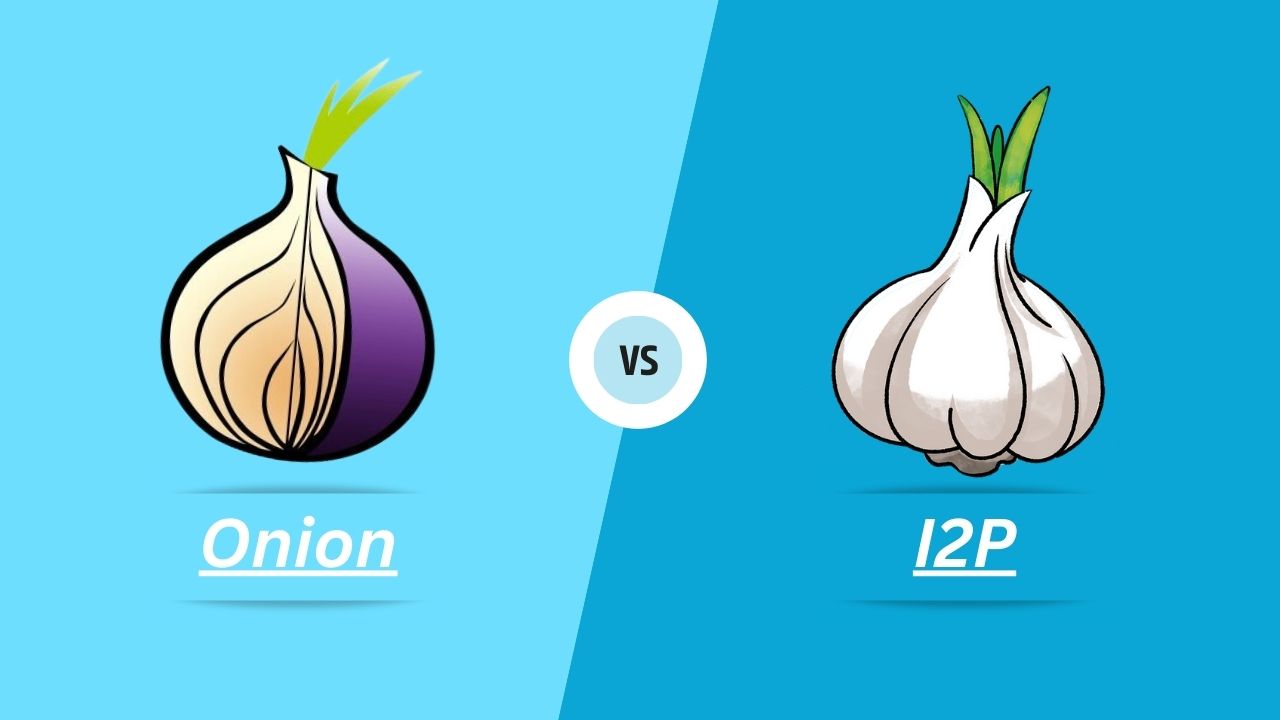Onion and I2P are the most commonly used networks on darknet. And as far as I know, you must have felt it too while getting into the darknet world.
In this blog post, we will see how Onion and I2P work. Plus, I’ll help you pick the most secure network for your darknet endeavors.
And guess what? I’ll do this in plain English, without getting into the technical mumbo jumbo. So let’s get started!
How Does Onion Work?
Onion or Tor is something that operates over a network through a series of nodes. We can call it a routing model in which it encrypts traffic between the user’s device and the first relay in the circuit, but not to the final destination. It provides two-way encrypted connections between each relay, creating layers of encryption like the layers of an onion. Simply, it’s just like multiple layers of Onion that hides your true origin.
How Does I2P Work?
Just like Tor is called Onion or vice-versa, the same goes for I2P. It’s either called I2P or Garlic. It doesn’t have a central point of control or failure in the network, making it more resilient.
Unlike Onion, it uses only one-way connections between every server. And when it comes to end-to-end encryption, it all goes within the I2P network only.
Onion vs I2P: 3 Main Key Differences
First, you should know that Onion and I2P both work in a very similar way. The main goal of both networks is to equip you with high-level anonymity.
Here are some main differences between Tor and I2P:
#1 – I2P is more private but it’s risky
Onion allows you to visit clearnet as well as darknet, keeping you secure. On the other hand, I2P is more private but somehow puts you at risk too.
Sounds confusing right? How can it be more risky if it’s private?
Let’s suppose you’re in a group of people where you know each other. Even though the outside world doesn’t know all of you, you all know each other. Yes, this is what I2P is like.
If we talk about Onion, you’re on your own. Nobody will be able to recognize you if you follow safety measures.
#2 – Onion is Easier Than I2P
When browsing through a Tor network, you only need to double-click. But if it’s about I2P, installing Java is the hardest part. So basically, I2P is considered that deep web where you can’t get in easily.
# 3 – I2P lacks resources
There are more Onion users than I2P ones. And just because of that, people are crazy about Tor. In fact, there are many blogs, YouTube videos, books, and other studies that may help you get the hang of it.
When is it better to choose I2P over Tor?
One advantage of I2P is its optimization for hidden services. Such services in I2P are designed to be faster compared to those in Tor, making I2P a better option when it’s about getting faster for internal communications within the network.
Apart from this, I2P doesn’t get as much funding as Tor does. This is because I2P feels like it belongs to the traditional era. Meanwhile, Tor has many developers because everyone loves C language more than Java.
When is it better to choose Tor over I2P?
Tor has a much larger user base and visibility in the academic and hacker communities. This extensive user base has resulted in formal studies on anonymity, resistance, and performance, contributing to the continuous improvement of the Tor network.
What’s more interesting is the fact that Tor has also addressed scaling issues that I2P is still working on, making it a more mature and established network.
All in all, I can say it’s a modern network which is growing much more rapidly than the I2P. So of course, this is the future of the dark web.
Final Thoughts: Why Onion is Better Than I2P for Darknet Users?
Onion is a more secure network than I2P. Here’s why!
Let’s suppose you’re in a group where everyone knows your identity other than the outside world. Yes, this is what I2P is like.
If we talk about Onion, you’re over a Tor network where you’re not in a private group. In this network, you’re on your own and one really knows who you are.
While browsing darknet, I’d recommend you to stick to the Onion network. After all, it’s a place where you can’t trust anyone, especially while browsing the darknet marketplaces.

Hey there, I’m a dark web geek who’s been around for the last 8 years. More precisely, I’m livedarknet’s senior content writer who’s been writing about darknet marketplaces, tutorials, and cybersecurity stuff for educational purposes.

